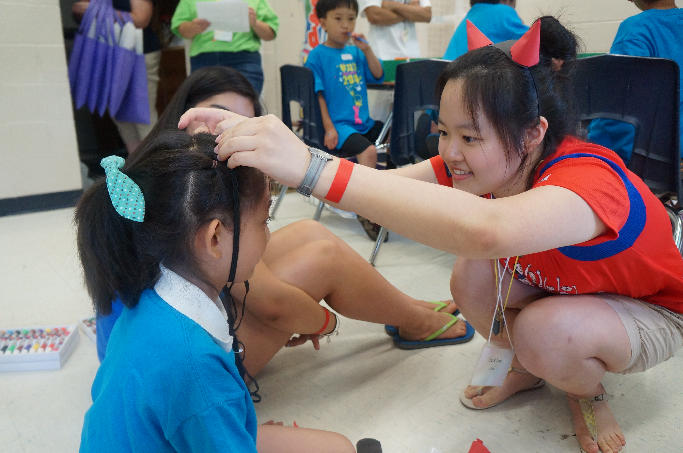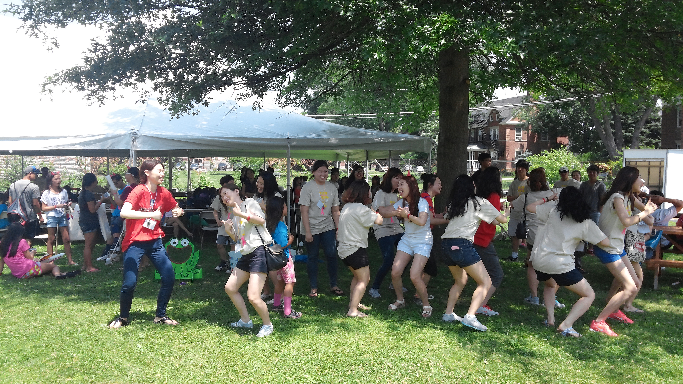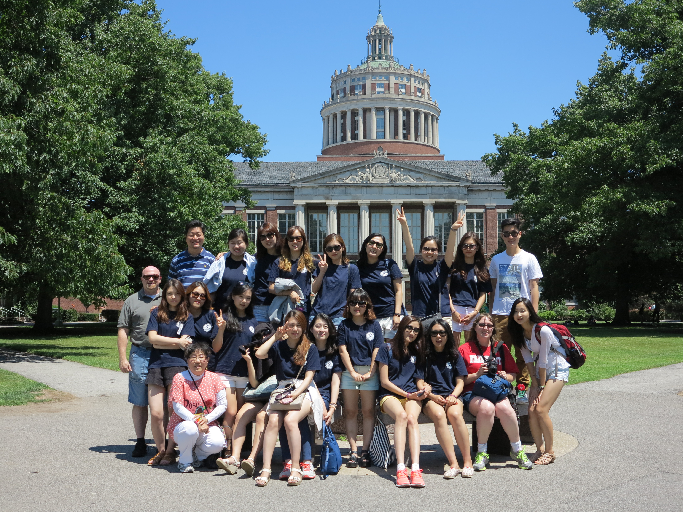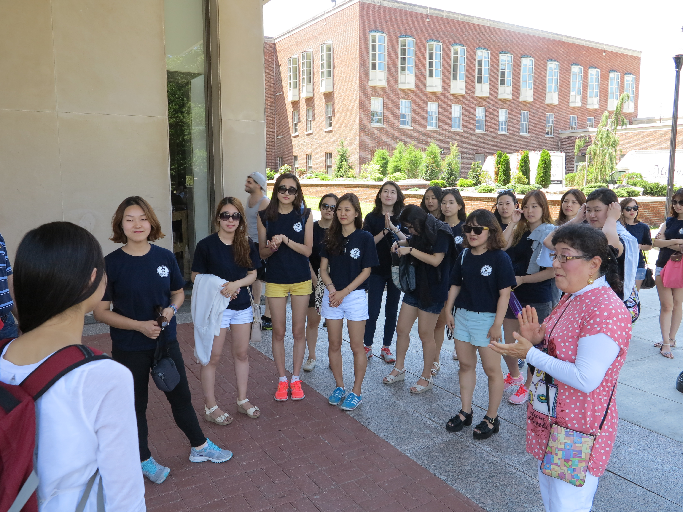Sookmyung SIWA Volunteers Conducts Education Volunteer Work for Koreans Adopted to the United States
- Views 8015
- Writer 커뮤니케이션팀
- 보도일자 2014-09-17
1. Hello, Nice to meet you. First, will you please introduce the SIWA Volunteers?
SIWA stands for Sookmyung International Women's Association. As a leadership group that is part of the Social Services center, we teach Korean culture and language to Koreans adopted to the United States and second generation Koreans living in the United States. We participate in the "Rainbow Camp" that is held in Albany, New York, each year, and "Heart and Seoul" in Rochester every year, where we hold a variety of classes for Koreans adopted to the US. In Korea, we educate people on adopted children, and also do bath volunteer work for the disabled at the Holt Ilsan Welfare Town.


2. Will you tell us about the activities you do at the adopted Korean children camp in the United States in detail?
We hold a total of five classes. First, 'Folk Tales' is a class where we do plays based on traditional Korean folk tales. 'Dance and Music' is where we teach K-pop and dance, and 'History' deals with Korean history. The 'Korea Today' class teaches people about current issues in Korea or Korean culture. Lastly, 'Hangeul' teaches the Korean language, hangeul. We allocate around 3 to 4 student volunteers to each class.


3. It probably takes a lot of time and effort to prepare for so many classes. How did you prepare?
Once you are selected as a member of the group, you have to start as soon as the new semester begins. We prepare right up to when we leave for the United States at the end of June. We have class meetings and general meetings every week, where each team presents the curriculum they are working on. Older members who have already been to the events know what the children like, so they give us a lot of feedback. They listen to our education themes and details and give us advice, like, "I think the children will like this" or "They might not receive this very well" We revise the curricula based on the feedback, and our advising professor reviews the results at the final meeting.

4. With such a thorough camp preparation process, you must have made many memories too. Can you tell us any funny camp stories?
The children mostly like active activities and get bored from sitting down to study, so the Hangeul class was never very popular. However, the American parents were interested in learning the language. Some actually study Korean, and some asked questions like what is the dueum rule and what is the difference between hangeul and Chinese characters. Less than 10 of the 150 children know how to write their name in Korean, but the parents were more active and fascinated by the language, asking how to pronounce their child's name in Korean, and how to write it.


5. I heard that your accommodation was home stay while you were in the United States. What was that like?
Our home stay homes were at the homes of the families who adopted Koreans. Two SIWA members stayed at one house each. We stayed at a total of 8 houses, and they were all very good to us. The place where I stayed even collected photos taken of me and the family together and made an album for me. I took a gift with me from Korea to give to the family, but they were so good to me that the gift felt too small.


6. The camp and home stay all sound like special experiences. Did you learn or feel anything new through the experiences?
There was a lot to learn from the parents. They adopted a child from a country they hardly know anything about. It's not familiar territory for us Koreans, so I wondered why they did it. One day, I carefully asked them why they decided to adopt. Thankfully, they answered my question honestly. They said that when people around them heard they had adopted, they said things like "You did something good," or "You will be blessed." But they said that was not they case. They said they did not do something good, but that they were happy and blessed because the child came to them, and were very thankful about having the child.

All of the SIWA Volunteers members agreed that the adopted children were not people we should pity or have sympathy for. Their prejudices not only disappeared, but they even grew to understand the families. The families who adopted were not people who conducted a great sacrifice unlike others, but rather families blessed with another family member. They said the essential condition of a 'family' was 'love.' Even if a family is not connected by blood, if they have a relationship based on love and can live happily, doesn't that make them the happiest family?



